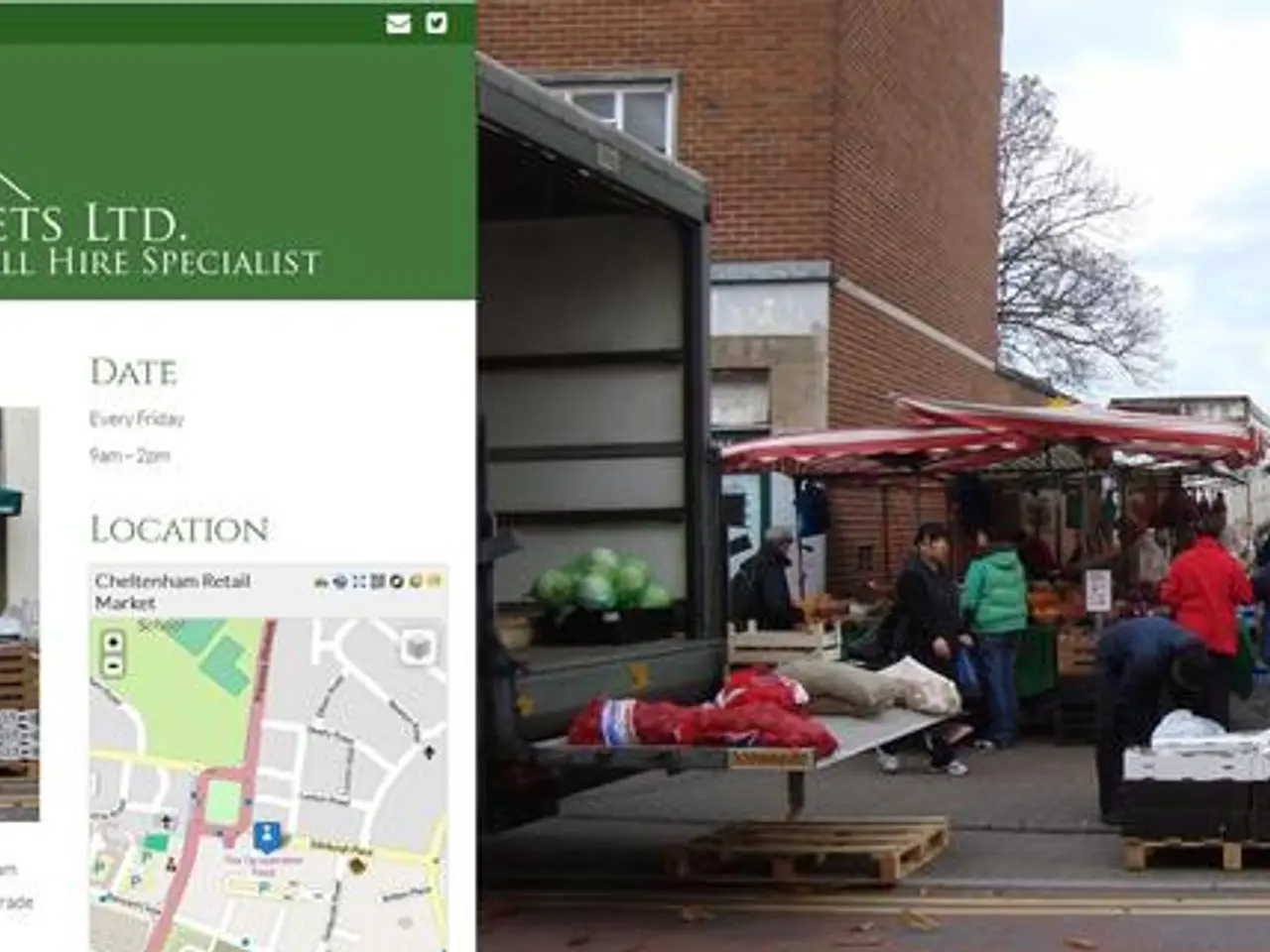French Heatwave (Heatwave): Its Significant Influence on the National Economy
Heatwave Disrupts French Economy and Agriculture
France is currently experiencing a severe heatwave that is causing significant disruptions to both industries and agriculture, resulting in economic consequences.
In a bakery located in Val-d'Oise, Christophe Rouget, the founder, has observed a significant drop in sales and a quieter store atmosphere. The heatwave has led to a decrease in foot traffic by approximately 15%, making it challenging for businesses like his to maintain their usual turnover.
The agricultural sector is also feeling the brunt of the heatwave. Laetitia Guilbert, an orchard owner, is racing against time to harvest her apples and peaches to prevent spoilage. The high temperatures are causing fruits to ripen earlier than usual, putting pressure on farmers like Guilbert who lack cold storage facilities.
Furthermore, the heatwave has led to reduced crop yields and increased water stress, particularly in southwestern France. Corn, strawberries, tomatoes, and apple orchards are affected by the extreme heat combined with water shortages. Farmers are taking adaptive measures like ventilating greenhouses and using sun protection nets, but concerns about irrigation failures and plant stress persist.
The heatwave has also driven inflationary pressures in food prices across Europe due to lower agricultural production and supply chain disruptions.
Industrial impacts include shutdowns of nuclear reactors to prevent overheated water discharge. Several sectors struggle to adapt to high temperatures, with outdoor construction work suspended and changes in waste collection schedules to avoid peak heat times.
The heatwave is causing a measurable negative impact on France’s GDP growth, estimated as a loss of about 0.3 percentage points during June and July 2025. Across Europe, heatwaves already cost approximately 1% of GDP globally, with projections indicating this could rise to 3% by 2050 if current climate policies remain unchanged.
Customers are buying fewer pastries along with their meals due to the heatwave, adding to the economic slowdown. Laetitia Guilbert's main concern is a potential simultaneous harvest, as she lacks a cold room and needs to sell her harvest without delay.
The heatwave could cost the economy up to 9 billion euros, according to initial estimates. It is a stark reminder of the economic impact of extreme weather events and the need for climate mitigation strategies.
- The heatwave in France is causing disruptions not only in industries and agriculture but also in environmental science, as the rise in temperature could lead to further climate-change effects.
- In the wake of the heatwave, financial institutions may need to consider climate-related risks in their future investment decisions, as the economic impact of extreme weather events, such as this one, could become more frequent and severe.
- Given the significant economic consequences of the heatwave, it is crucial for the government to support farmers and businesses by investing in sustainable agricultural practices, renewable energy sources, and improving the resilience of industries against climate change.




